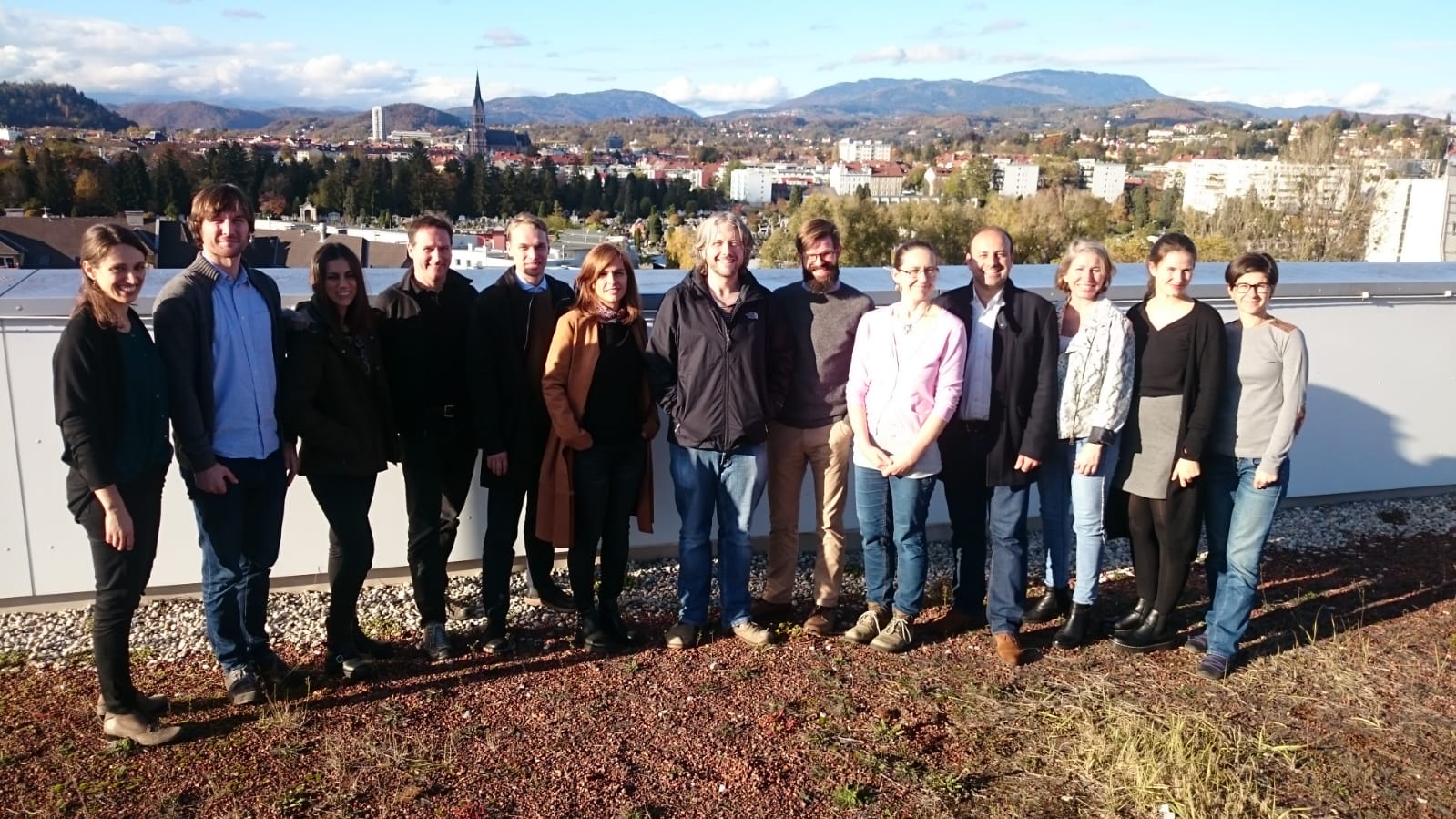ON-MERRIT kick off
2019-11-04
From 4-5 of November 2019, the ON-MERRIT partners came together in Graz to kick of the 2,5 year project, coordinated by the Know-Center GmbH.To make sure we’re on track and working together from the beginning, all partners presented their ideas on how to best tackle our research questions. The whole team worked on coordinating the plans for the different tasks, refining ON-MERRIT’s priorities, and identifying ways to support each other. The kick-off meeting was not only very productive, but we also really enjoyed working together. Full of enthusiasm, we even skipped a restaurant visit at lunch-time. Still, the delicious dinner at the restaurant the Steirer in Graz more than made up for this. Looks like there is nothing in the way for ON-MERRIT to become a real success!

Repost from Know Center Website
OPEN SCIENCE AND CUMULATIVE ADVANTAGE: KNOW-CENTER COORDINATES EU PROJECT ON-MERRIT
ON-MERRIT studies „Matthew effects“ of cumulative advantage in Open Science and Responsible Research and Innovation across research, industry and policy-making, through a mix of sociological, bibliometric and computational approaches. It will be launched in October 2019. Responsible Research and Innovation and especially Open Science promise to make scientific research more inclusive, understandable to the public, and accessible to and reusable for large audiences. On the face of it, this is how research funded by the public is organized, but: “A lot of research is publicly funded, but then gets hidden behind a paywall. Open Science holds the promise to benefit society at large by making publicly-funded research available to the public at no extra cost. However, we need to be careful not to make science open in such a way as to only help already well-resourced institutions”, says Tony Ross-Hellauer, Project Coordinator of ON-MERRIT and Senior Researcher at Know-Center in Graz, one of the leading research centers for Big Data in Europe. “Right now, the ability to re-use research – even when it is openly accessible – depends to a large extent on one’s resources, in terms of money, prestige, and visibility. If we want to be true to the principles of Open Science, this needs to change.”
Making science open to the general public thus stands the risk of being undermined by a dynamic of cumulative advantage – those who already have stand to gain even more through Open Science. The new EU-funded project ON-MERRIT – Observing and Negating Matthew Effects in Responsible Research and Innovation Transition recognises this threat to be urgent. In response, the interdisciplinary consortium led by the Know-Center will deploy a cutting-edge combination of qualitative and computational methods, stakeholder participation and co-design to engage researchers, industry, policy-makers and societal stakeholders generally.
1 million Euros from the Horizon 2020 programme
ON-MERRIT will be launched in October 2019 and runs until March 2022, with total funding of 1 million Euros from the EU’s Horizon 2020 programme. “We are delighted to lead this important project to study who benefits from the transition to Open Science. ON-MERRIT adds to our growing portfolio of projects in this area”, says Know-Center CEO Stefanie Lindstaedt.
International partner consortium
The interdisciplinary ON-MERRIT consortium consists of five members from universities, industry and research centers based in Austria, Germany, Great Britain and Portugal. They share a long history of successful cooperation and have a long experience in successfully completed EU and Industry projects, especially in the fields of Open Science and Policy Research. ON-MERRIT gathers a range of skills in a consortium funded by the EU Horizon 2020 programme including experts in open science, data analytics, interaction with data, policy research, as well as stakeholder engagement. In addition to Know-Center, the expert consortium includes Open University (UK), University of Goettingen (DE), University of Minho (PT) and Graz University of Technology (AT).